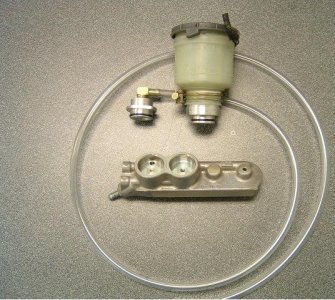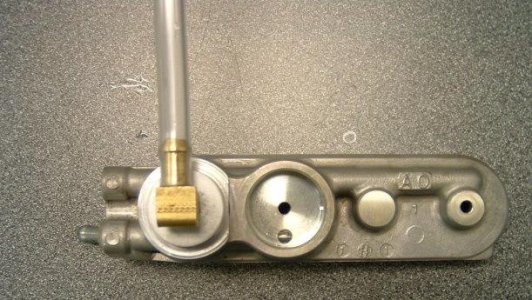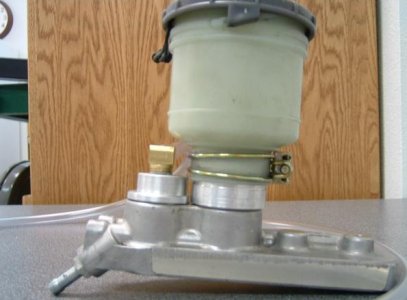Just thought that I would update you early NSX owners who are looking for some relief for your malfunctioning ABS systems.
After getting to pay the mechanic at the local dealership to service my ABS unit twice, and the pump still cycles, I have taken on the crusade to fix my ABS unit. I have purchased a non-functional modulator (dissassembled and figured it out) purchased the Acura T-Handle ABS bleeder tool, made up the wiring harness (Dano DIY, Thanks Dano) and, I recently purchased a complete ABS system from another Prime Member, that I am going to use as a bench test unit to pressure test modulators, pressure switchs, pumps, solenoids and accumulators.
I am in the process of building a pair of blocks to flush/back flush the early solenoids.
I plan on dissassembling the module in my car, cleaning the inside of the housing, flushing the solenoids, reassembling the whole unit and pressure testing. I will then monitor it, under pressure, for a couple days to verify the service. If I am successful with all of this, I have two other modulators to do the same with.
My ultimate goal is to fix my ABS system and to help other NSX owners that are having problems keeping their early ABS systems operational at a reasonable cost. I am getting very excited about this whole thing.
I will see how much time it takes to do this and come up with a fair cost to offer to other members. Let me know what you think.
Brad
After getting to pay the mechanic at the local dealership to service my ABS unit twice, and the pump still cycles, I have taken on the crusade to fix my ABS unit. I have purchased a non-functional modulator (dissassembled and figured it out) purchased the Acura T-Handle ABS bleeder tool, made up the wiring harness (Dano DIY, Thanks Dano) and, I recently purchased a complete ABS system from another Prime Member, that I am going to use as a bench test unit to pressure test modulators, pressure switchs, pumps, solenoids and accumulators.
I am in the process of building a pair of blocks to flush/back flush the early solenoids.
I plan on dissassembling the module in my car, cleaning the inside of the housing, flushing the solenoids, reassembling the whole unit and pressure testing. I will then monitor it, under pressure, for a couple days to verify the service. If I am successful with all of this, I have two other modulators to do the same with.
My ultimate goal is to fix my ABS system and to help other NSX owners that are having problems keeping their early ABS systems operational at a reasonable cost. I am getting very excited about this whole thing.
I will see how much time it takes to do this and come up with a fair cost to offer to other members. Let me know what you think.
Brad







